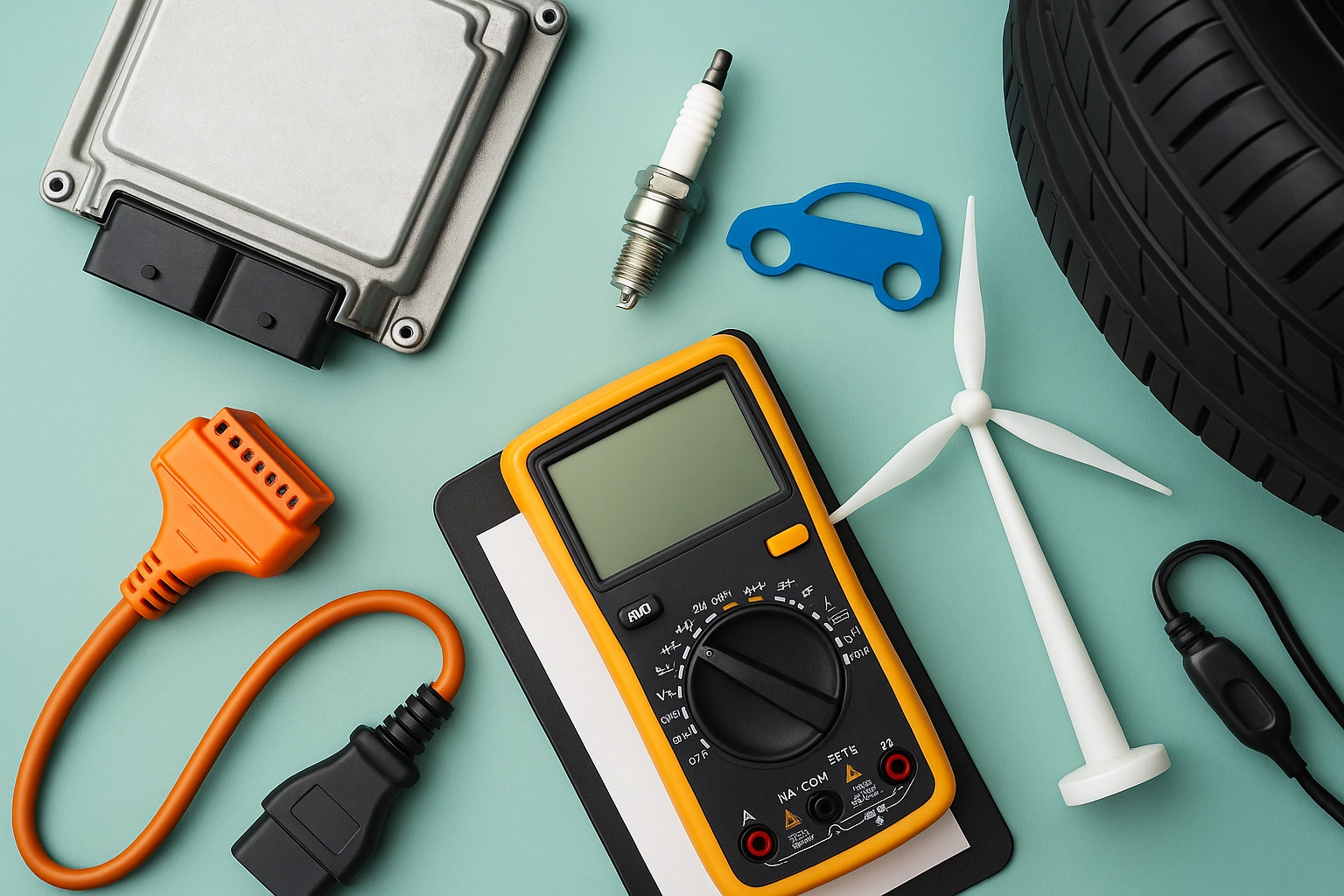IEC 63110 Electric Vehicle Charging Communication Test
The IEC 63110 standard is a critical component in ensuring reliable and safe communication between electric vehicles (EVs) and charging stations. This test, specifically designed for the automotive sector, plays a vital role in validating the interoperability of EV chargers with various types of vehicles. The standard defines the communication protocols that enable secure and efficient data exchange necessary for the proper functioning of charging infrastructure.
The primary purpose of this testing is to ensure that all participants—EVs, charging stations, and network operators—are able to communicate effectively using standardized messages. This interoperability is essential as it allows different manufacturers' products to work together seamlessly without requiring proprietary systems or additional configuration.
IEC 63110 establishes a framework for communication between the EV and the charger, including:
- Data exchange during connection and disconnection
- Monitoring of charging status
- Error reporting and handling
- Security measures to protect sensitive data
- Configuration of charging parameters such as current limits and voltage levels
The communication protocol is based on the ISO 15118 standard, which defines the physical layer and lower layers (layers 1-4) of the Open Systems Interconnection (OSI) model. This ensures that the communication between the EV and charger adheres to international standards, promoting global compatibility.
The testing process involves several steps to ensure compliance with IEC 63110:
- Preparation of Specimen: The vehicle under test must be fully functional and capable of communicating via the onboard diagnostic (OBD) interface. The charger used for testing should also meet all necessary requirements specified in the standard.
- Connection Setup: The EV is connected to a dedicated charging station that supports IEC 63110 communication. This setup mimics real-world conditions as closely as possible.
- Data Exchange Simulation: During this phase, various scenarios are simulated to test the robustness and reliability of the communication system. These include:
- Initial connection handshake
- Data transfer during charging
- Error handling and recovery mechanisms
- Security checks
- Accuracy of data transmission
- Response time to communication requests
- Compliance with ISO 15118 standards
- Security measures in place
This rigorous testing process ensures that both EVs and chargers are compatible with international standards, enhancing user experience and safety. Compliance with IEC 63110 also helps manufacturers meet regulatory requirements in various markets around the world.
By conducting thorough tests according to this standard, we can ensure that electric vehicles integrate seamlessly into existing charging networks, supporting widespread adoption of electric mobility solutions.
Benefits
The benefits of complying with and conducting IEC 63110 testing are numerous. Compliance ensures that the communication between EVs and chargers is reliable and secure, which in turn enhances user satisfaction. For manufacturers, this means reducing the risk of product non-compliance penalties and improving brand reputation.
From a regulatory standpoint, meeting these standards demonstrates commitment to safety and environmental responsibility. It also opens up market access to regions with stringent requirements for EV charging infrastructure.
For R&D teams, IEC 63110 testing provides valuable insights into potential issues early in the development process, allowing for necessary adjustments before mass production begins.
The standard encourages innovation by promoting a level playing field among competitors. Companies that adopt and adhere to these guidelines are better positioned to attract investment and secure partnerships within the industry.
Moreover, successful implementation of IEC 63110 contributes significantly towards reducing emissions from transportation, aligning with global sustainability goals. This is particularly relevant given the growing focus on reducing carbon footprints across all sectors.
Environmental and Sustainability Contributions
The IEC 63110 standard plays a crucial role in promoting environmental sustainability by facilitating efficient and sustainable electric vehicle charging. By ensuring interoperability between different types of vehicles and chargers, this standard helps minimize waste associated with incompatible systems.
Interoperable EV charging solutions contribute to reduced greenhouse gas emissions from transportation. When multiple manufacturers' products work together seamlessly, it reduces the need for separate infrastructure investments, which in turn lowers overall energy consumption and carbon footprint.
The standard also supports sustainable urban planning by enabling the integration of EVs into existing power grids without overloading them. Efficient charging networks reduce peak demand on electricity systems, helping to balance supply and demand more effectively.
Compliance with IEC 63110 not only benefits individual users but also contributes positively to broader environmental initiatives. It supports efforts to transition towards greener transportation options while maintaining reliable service for consumers.
In summary, the implementation of IEC 63110 in electric vehicle charging communication helps create a more sustainable future through enhanced efficiency and reduced environmental impact.
Competitive Advantage and Market Impact
Adhering to international standards like IEC 63110 offers significant competitive advantages for companies operating in the automotive testing sector. By ensuring compliance, businesses can demonstrate their commitment to quality and safety, thereby building trust with customers.
This standard sets a benchmark that consumers can rely on when choosing products or services related to electric mobility. It provides peace of mind knowing that interoperability issues have been addressed, leading to smoother user experiences.
From a strategic perspective, adhering to these standards positions companies ahead of competitors who may not yet have adopted similar practices. Early adoption allows for better preparation and response to emerging trends in the industry.
The standard also opens up opportunities for international expansion by meeting local regulations and preferences across different countries. As electric vehicles gain popularity worldwide, having a globally accepted certification can be a decisive factor in securing new markets.
Furthermore, compliance with IEC 63110 aligns companies with broader sustainability goals, potentially attracting environmentally conscious consumers who are increasingly prioritizing green technologies. This alignment enhances brand image and fosters long-term customer loyalty.
In conclusion, embracing the IEC 63110 standard is not just a compliance requirement; it's an investment in future growth and success within the rapidly evolving electric vehicle industry.





